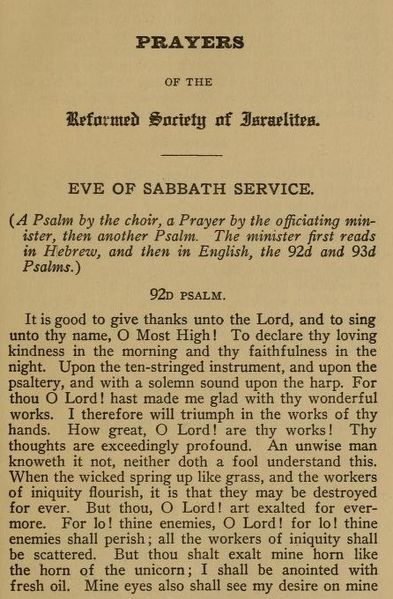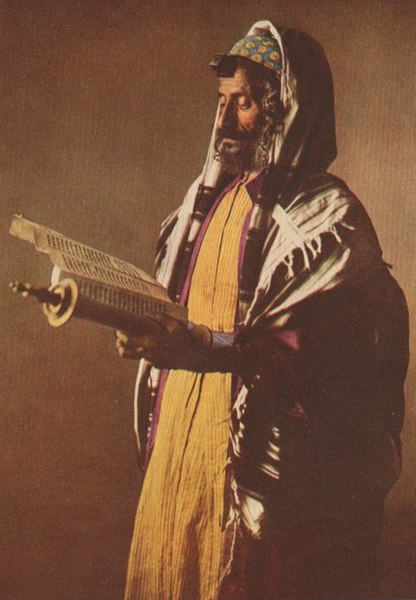Reform Judaism, also known as Liberal Judaism or Progressive Judaism, is a major Jewish denomination that emphasizes the evolving nature of Judaism, the superiority of its ethical aspects to its ceremonial ones, and belief in a continuous revelation which is closely intertwined with human reason and not limited to the Theophany at Mount Sinai. A highly liberal strand of Judaism, it is characterized by little stress on ritual and personal observance, regarding Jewish law as non-binding and the individual Jew as autonomous, and by a great openness to external influences and progressive values.
The interior of Congregation Emanu-El of New York, the largest Reform synagogue in the world.
A segment of the 1818 Hamburg prayer book. Stating "accept the uttering of our lips instead of our obligatory sacrifices" and omitting the traditional "O gather our dispersions... Conduct us unto Zion" passage.
A passage from the Reformed Society's prayerbook, which was mostly in English and theologically more radical than Hamburg's.
Rabbi Samuel Holdheim, circa 1850.
Jewish religious movements
Jewish religious movements, sometimes called "denominations", include diverse groups within Judaism which have developed among Jews from ancient times. Today in the west, the most prominent divisions are between traditionalist Orthodox movements and modernist movements such as Reform Judaism originating in late 18th century Europe, Conservative originating in 19th century Europe, and other smaller ones, including the Reconstructionst and Renewal movements which emerged later in the 20th century in the United States.
In central Karaite synagogue, Ramla
Torah reading Sephardic custom
A Yemenite Jew in traditional vestments under the tallit gadol, reading from a Torah scroll
Italian siddur (סידור איטליני)








